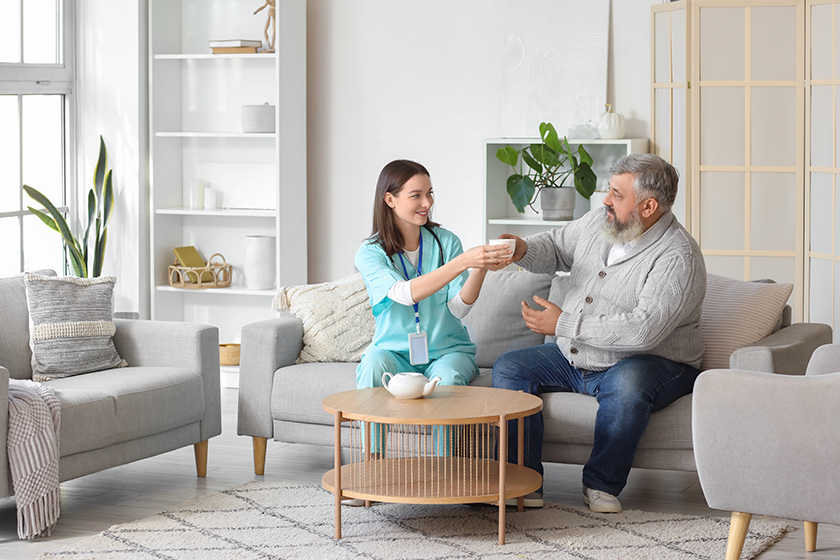When deciding on assisted care, the approach to care makes a significant difference. Families and individuals often look for the best fit, but the options can be confusing. There are two main methods used in Mooresville, NC: patient-centered care and people-centered care. These approaches may seem similar at first glance, but their focus and execution vary greatly, directly impacting the quality of care and the experience for older adults. It’s important to understand how each method works to make an informed decision.
What Is Patient-Centred Care?
Patient-centered care focuses on meeting an individual’s immediate medical needs. Healthcare professionals address treatments, medications, and specific health concerns. The approach aims to manage the patient’s condition through direct interventions or regular checkups, to improve health by addressing symptoms or diagnoses through personalized care plans.
What Is People-Centred Care?
People-centered care focuses on the individual’s overall well-being, not just their medical needs. It considers emotional, social, and mental health, looking at all aspects of a person’s life. Care teams collaborate with the individual and their family to create a plan that reflects personal preferences, lifestyle, and social connections. This approach aims to improve quality of life by making the person feel valued and supported in every area.
Key Differences Between The Two
- Focus
The main difference is that patient-centered care focuses on treating specific medical conditions. It is clinical and treatment-driven, aimed at monitoring and managing health. In contrast, people-centered care views the person as a whole, addressing not only medical needs but also considering lifestyle, preferences, and what brings comfort and happiness. - Perspective
Patient-centred care views the individual as a patient with a medical condition that needs attention. It concentrates on healthcare outcomes, seeing the person through the lens of their illness or condition. People-centered care takes a broader perspective, seeing the individual as a person with a rich life history, relationships, and needs that extend beyond their medical condition. This approach values personal history and preferences just as much as medical needs. - Goals
In patient-centered care, the goal is to improve health by addressing immediate medical concerns. The focus is on reducing symptoms, managing conditions, and making treatments effective. People-centered care, on the other hand, aims to enhance the overall quality of life. This includes supporting emotional well-being, maintaining personal connections, and creating a fulfilling daily routine that reflects the individual’s preferences and values. - Approach
Patient-centered care follows a structured, clinical approach. Care teams develop detailed medical plans to treat illnesses or manage conditions. In contrast, people-centered care is more flexible, evolving as the individual’s preferences, needs, or circumstances change. This approach allows for personal engagement, adapting care to fit smoothly into the person’s daily life. - Communication
In patient-centered care, communication is primarily between healthcare professionals and the individual about their medical treatment. It’s often more formal and focused on health updates or changes. People-centered care involves more open, ongoing communication between the individual, their family, and the care team. This creates a supportive environment where everyone involved stays informed about both health and personal preferences.
Benefits of People-Centred Care vs. Patient-Centred Care
People-centered care creates a more fulfilling experience for older adults by addressing their need for emotional support and personal interaction. It gives individuals greater control over their daily lives and tailors care to their personal preferences, not just medical needs. Families also appreciate this approach, as it involves them in decision-making and makes the care process more transparent and personalized. On the other hand, patient-centered care is valuable for those needing intensive medical supervision, where managing health outcomes is the primary focus.
People-centered care supports overall well-being by keeping the person socially and emotionally engaged. This helps improve mood, reduce loneliness, and foster a positive living environment. Patient-centered care, on the other hand, focuses on effective medical management, and addressing health issues promptly and professionally, which is important for older adults with serious conditions.
Discover Personalized Care at Our Retirement Community – Assisted Living Community and Senior Living Services
At our community, we offer personalized assisted living community services that cater to the unique needs of each resident. We focus on providing a holistic care approach that emphasizes both medical and personal well-being, ensuring a balanced and fulfilling lifestyle. Our wide range of senior living services allows us to tailor care plans that meet the specific preferences and health requirements of our residents. Schedule a tour today and experience how personalized care enhances every aspect of life.







